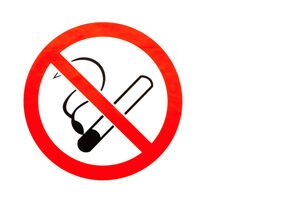The anti-smoking bill, which was introduced in the Czech Republic in May last year, has already had a positive effect on people’s health, according to a Radio Prague report citing the results of a study newly-released by the Prague-based Institute of Health Information and Data.
The comparative study, which covered the period between June 2016 and November 2017, was said to have shown that there were more than 13 percent fewer heart attacks and 16 percent fewer patients hospitalized with heart problems. It wasn’t stated, but has to be assumed, that the drop in such hospitalizations occurred after the introduction of the bill’s smoking ban.
Eva Králíková, the country’s leading anti-smoking campaigner, admitted that the figures were only preliminary, but said she believed that they ‘definitely show a positive trend’.
“The institute compared the number of hospitalizations due to acute heart attack and other cardiovascular diagnoses as well as acute asthma and the decrease was significant, especially in the age group under 60, which suggests that it happened due to smoke-free legislation, said Králíková.
There have been several attempts to turn the smoking ban into smoking restrictions, and the Lower House of Parliament is currently debating whether to pass a proposal put forward by Civic Democrat deputy Marek Benda.
The proposal envisages creating separate smoking areas in pubs with their own ventilation, and suggests that the owners of bars with an area of 80 square meters or smaller could decide whether or not to allow smoking.
But, at the same time, more than 2,000 Czech doctors have signed a petition opposing any attempts to re-open a debate on the smoking ban.
Ban produces rapid results

